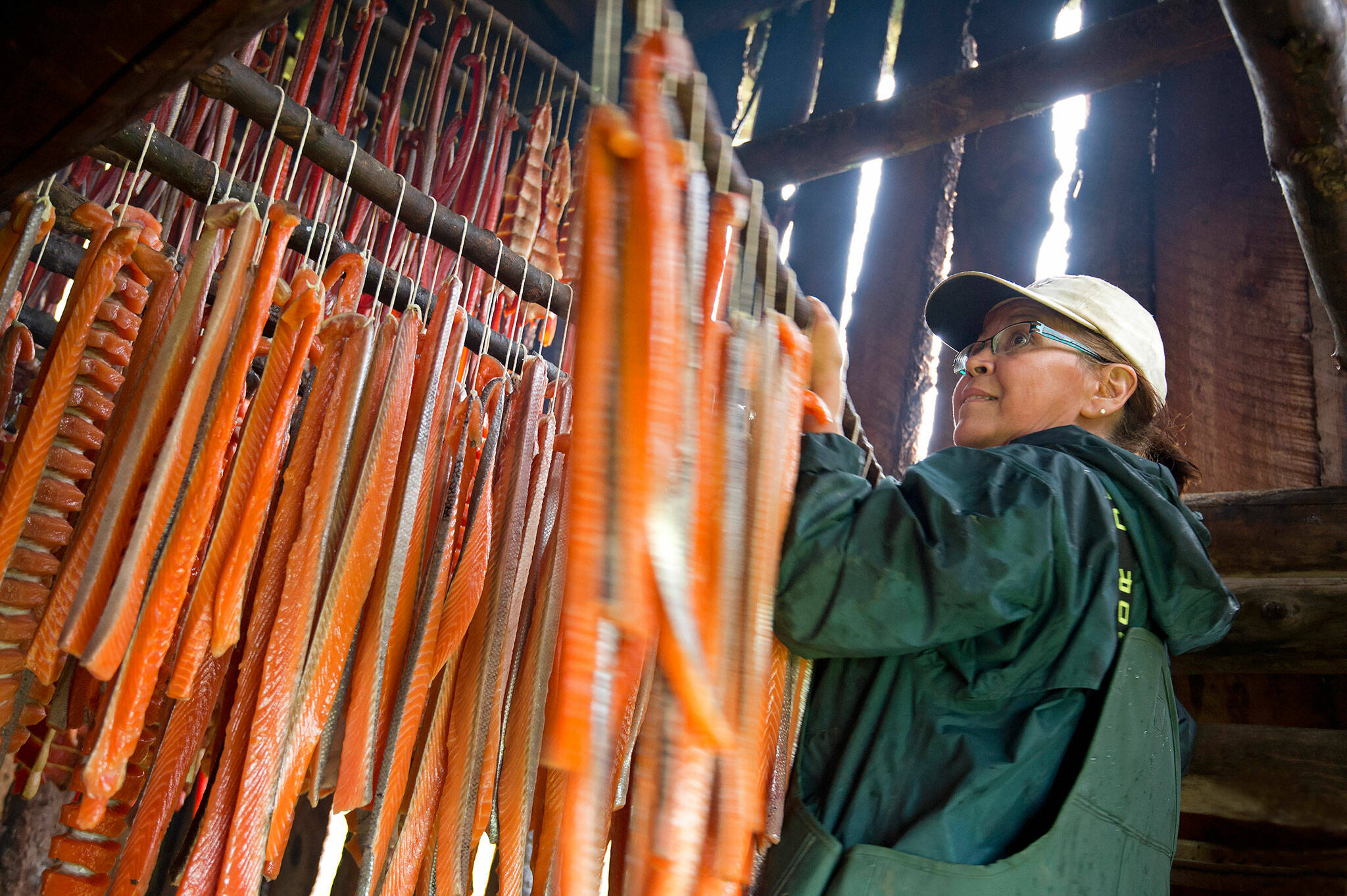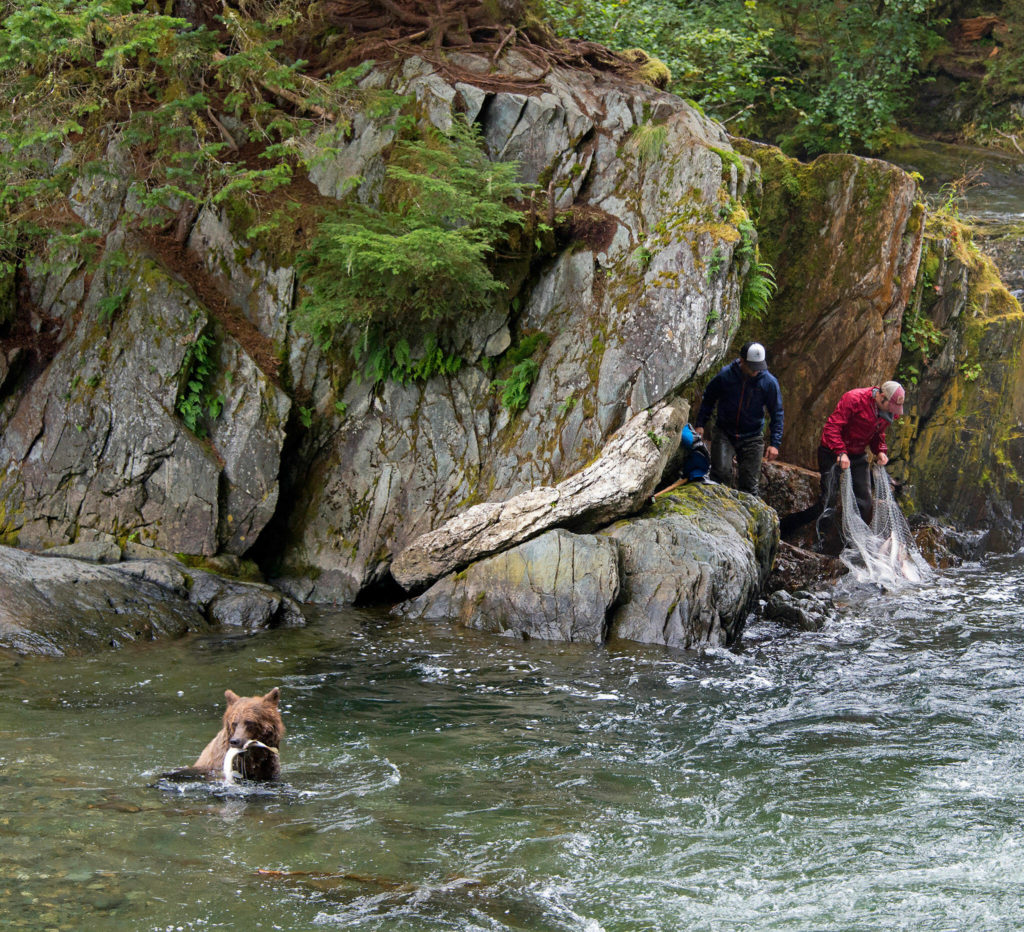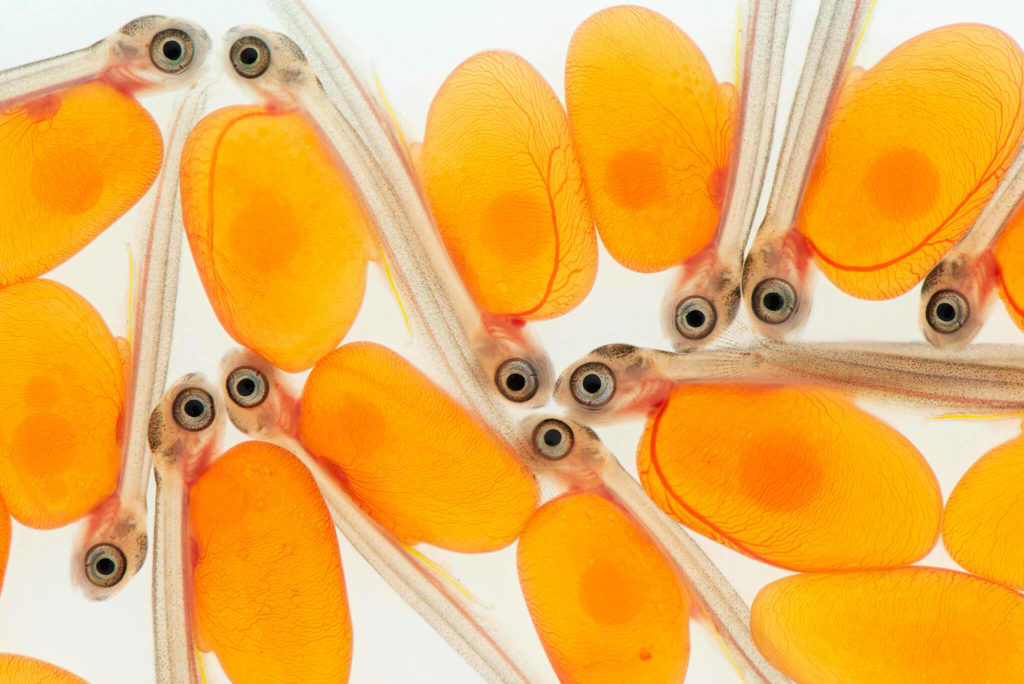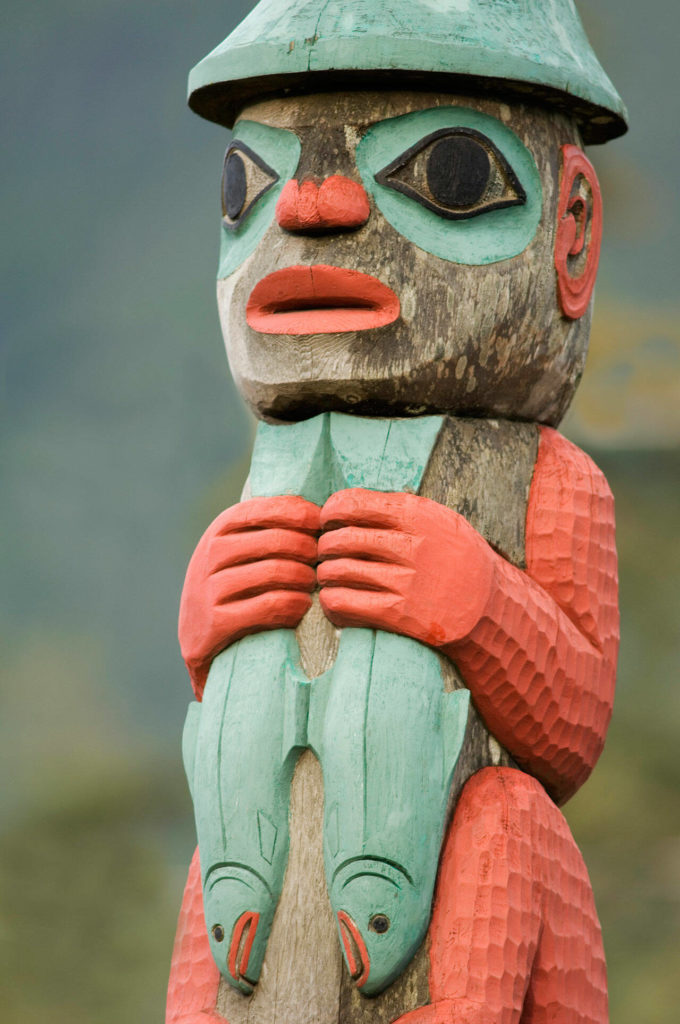By Amy Gulick / For the Herald
When the first Alaska Airlines flight carrying Copper River salmon arrives at SeaTac airport in May, the press clambers to greet them.
The door of the plane swings open and two uniformed pilots escort a hefty chinook salmon — the king of fish — onto a red carpet rolled out on the tarmac. The crowd cheers, cameras click, and celebrity chefs pose with the silver-scaled honoree. What other region gives a fish the royal treatment?
This celebration of wild salmon, the icon of the Pacific Northwest, is an annual ritual. We would be remiss, however, if we didn’t also celebrate where the salmon that grace our restaurants, backyard grills, and Pike Place Market seafood stalls originate.
There was a time when the salmon we ate came from our home rivers: the Skagit, Columbia, even the Duwamish. But today, more than 90 percent of all wild salmon we eat comes from Alaska; places like the Copper River, Taku River, and Bristol Bay. Alaska is the salmon state, the last best place in North America where wild Pacific salmon still support ecosystems, communities, cultures, economies, and valued ways of life.
What does this mean for Washington, Oregon, Idaho, northern California, and southern British Columbia where many salmon populations are less than 10 percent of their historical abundance? Where some populations have gone extinct? And what does it mean for Alaska, whose salmon are not immune to the impacts of logging, mining, urbanization and climate change?
Just as salmon know no borders, neither should we. From Alaska to British Columbia to northern California, we are one nation under salmon and ought to act like it. The needs of salmon in Alaska may be different than those in the Lower 48 or Canada, but regardless of whether salmon need to be protected, maintained, recovered or restored, it is imperative we unite and do right by the fish. Our elected leaders must reach across party, state and country lines to swim in the same salmon stream. Commercial fishermen, sport anglers, and Indigenous Tribes will have to come together to fight for the fish, not over the fish.
The current challenges and future uncertainties facing our wild salmon demand nothing less of us. We know what salmon need; clean cool fresh water to spawn and rear and a healthy ocean to mature; and the choice is ours to give it to them.
We would do well to learn from and follow the lead of Indigenous peoples throughout salmon country whose cultures have been built, nourished and sustained by salmon since time immemorial. We can start by acknowledging that wild salmon are a gift: to the land, water, animals, plants and people. We give thanks for this gift and give back by taking care of salmon and their habitat. We live in relationship with salmon by seeing them as the gift that they are, not treating them solely as resources for the taking.
A Dena’ina Athabascan woman from the Bristol Bay region of Alaska shared her people’s salmon way of being with me: “When we catch the first salmon of the season, we make a chowder so that everyone can have a taste. By sharing salmon, we show respect for the fish and share our gratitude with everybody. We return the bones of the fish to the water and ask the salmon to tell their relatives to come back and give themselves to the people.”
This season, when the Alaska Airlines plane touches down and bestows the first fish on our region of the salmon nation, let’s gather, give thanks, and give back by taking care of wild salmon everywhere.
Amy Gulick is the author and photographer of “The Salmon Way: An Alaska State of Mind.” A photographic exhibit based on her book is on display at the Seattle Aquarium through August. She lives in Clinton. See more photos from Guick’s book and the Seattle Aquarium exhibit online with this story at HeraldNet.com.
Talk to us
> Give us your news tips.
> Send us a letter to the editor.
> More Herald contact information.




























